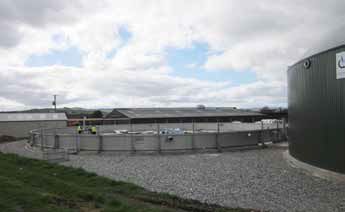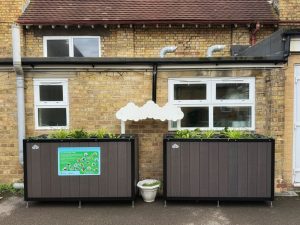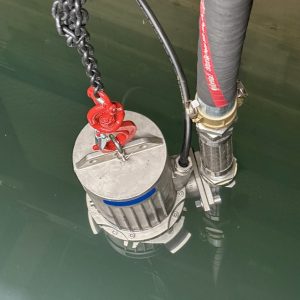Weltec Biopower UK Reports Two New Contracts
In view of the ongoing debate about a new feed-in tariff (FIT) system, the development of renewable energies in the UK is becoming ever more challenging. Thus, most anaerobic digestion plants are currently implemented by experienced companies. After all, quick planning and construction are a must in order to benefit from the calculated FIT. Against this backdrop, the plant manufacturer Weltec Biopower UK Ltd. from Stoneleigh, Warwickshire, has reported the placement of orders for two new agricultural biogas plant projects in England and Northern Ireland.

Weltec is currently building a 500-kW plant for Stephen Carson‘s agricultural enterprise near Strabane, Northern Ireland. The plant‘s two stainless-steel digesters (3,573 m³ and 4,903 m³) will be fed with 24,500 t of cattle manure, whole plant silage, dry chicken dung, grass silage, sugar beets and small quantities of maize. The project is progressing smoothly, and the plant is set to go live and feed in power as early as summer 2016.
Low Farm in Sherburn, England, also decided to have its 500-kW biogas project built with Weltec technology. The fast construction time was an important factor for the clients in their decision making, along with the quality, the experience of the company and the strength of the ongoing biological support. Despite delayed project commencement and exceptionally wet weather, Weltec successfully completed the plant ahead of the tight FIT pre-accreditation deadline, ensuring long term financial viability of the plant for the client. Weltec constructed the plant, based on a 3,573-m³ stainless-steel digester, achieving G59 in September 2015 despite only starting work on site in the beginning of July 2015. The plant has been online since September 2015, producing power and heat from pig manure, dry chicken dung, beets and some maize silage.
In both plants, the upstream MultiMix input system ensures optimum pre-treatment of the substrates. In this way, the operators can make use of inexpensive feedstock, such as manure and grass. The surface area of the input substances is enlarged through effective shredding in order to optimize substrate/bacteria contact and boost the methane yield. The MultiMix unit also removes stones from the feedstocks, reduces the likelihood of layering within the digester, and significantly reduces the energy required for digester mixing. The MultiMix thus plays a key role in ensuring the feasibility of the plant.
It is no coincidence that agricultural and industrial investors in the UK rely on Weltec Biopower. The biogas specialist has been involved ever since the UK‘s first biogas plant projects. The first British Weltec plant near Aberdeen, Scotland, which was set up in 2006, was one of the first biogas plants installed in the UK – and is still operating successfully. This documents the high technology and design standards that Weltec Biopower is setting. With ever tighter development deadlines it is more important than ever to make the most of an experienced team, and invest in tried, tested and trusted technology.
Picture: The plant‘s two stainless-steel digesters (3,573 m³ and 4,903 m³) will be fed with 24,500 t of cattle manure, whole plant silage, dry chicken dung, grass silage, sugar beets and small quantities of maize
Source: Weltec Biopower GmbH







